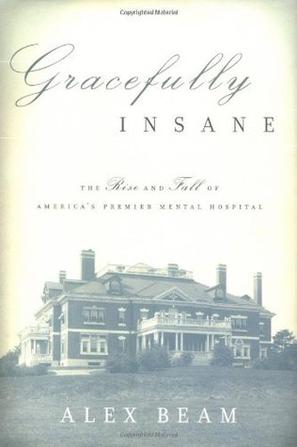Its carefully landscaped grounds -- chosen by Frederick Law Olmsted and dotted with four-and five-story Tudor mansions -- could belong to a prosperous New England prep school. There are no fences, no guards, no locked gates. But McLean Hospital is a mental institution -- one of the most famous, most elite, and once most luxurious in America. McLean "alumni" include many of the troubled geniuses of our age -- Olmsted himself, Robert Lowell, Sylvia Plath, James Taylor and Ray Charles -- as well as (more secretly) other notables from among the rich and famous.
In its "golden age," McLean provided as gracious and gentle an environment for the treatment of mental illness as one could imagine. "If the patient did not like the lamb we served for dinner and asked for lobster, we gave lobster," one steward recalled. "They could afford it. Appleton House [the men's ward] was like the Ritz Carlton." But the golden age is over, and a downsized, downscale McLean is struggling to find its place in today's brave new world of psychopharmacologically-oriented mental health care.
Gracefully Insane, by Boston Globe columnist Alex Beam, is a fascinating and emotional biography of McLean Hospital from its founding in 1817 through today, based on original research. McLean's own records, and interviews with former and current patients and staff. It is filled with stories about patients and doctors: the Ralph Waldo Emerson protege whose brilliance disappeared along with his madness; Anne Sexton's poetry seminar; the analyst (and McLean patient) whose own analysis was disastrously botched by Sigmund Freud himself, and many more. The story of McLean is also the story of the hopes and failures of psychology and psychotherapy, the evolution of attitudes about mental illness and approaches to treatment, and of the economic pressures that are making McLean -- and other institutions like it -- relics of a bygone age.
Finally, Gracefully Insane is, in the author's words, "a book about the men and women who needed shelter more than most of us, or who, in some cases, were more honest about their need for protection than we are. And about an institution that provided that shelter, imperfectly, in our imperfect world."
This is compelling and often poignant reading for those who have been moved by books like Plath's The Bell Jar and Susanna Kaysen's Girl, Interrupted (both inspired by their authors' stays at McLean) and for anyone interested in mental health care, in the history of medicine, or in the social history of New England
 Gracefully Insanetxt,chm,pdf,epub,mobi下载
Gracefully Insanetxt,chm,pdf,epub,mobi下载 首页
首页



让人叹为观止。
什么也不说了
相当发人深省
哈哈哈哈哈哈